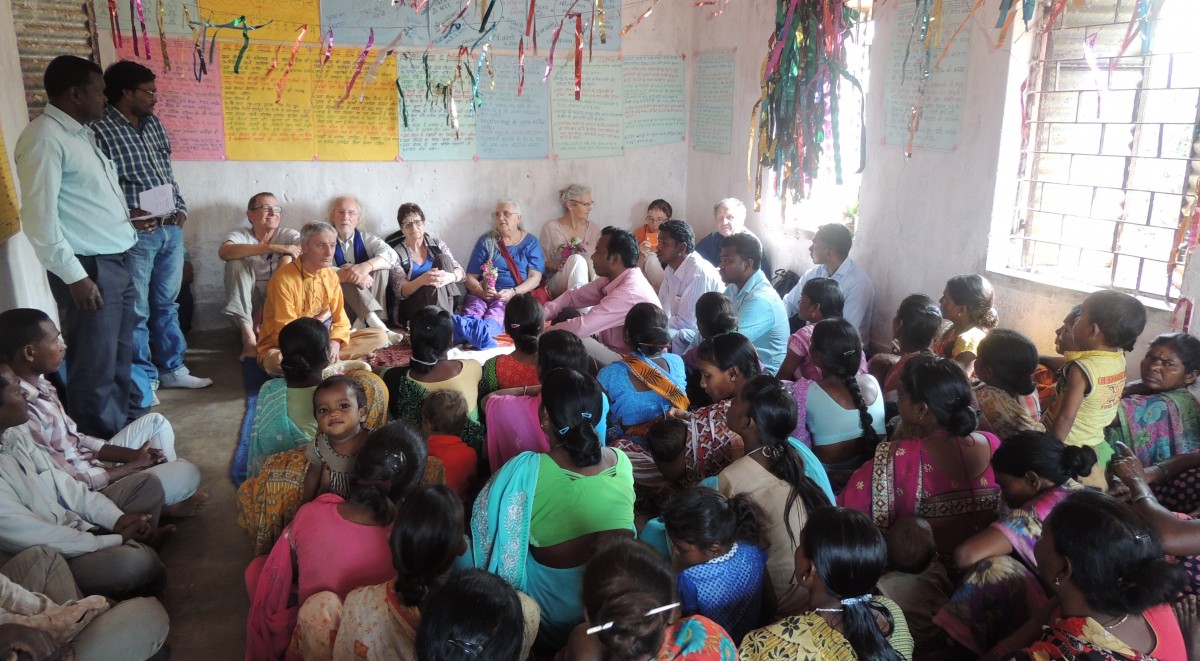
Enabling small and marginal farmers, from 1750 households in 25 villages of Angarha block in Ranchi district in Jharkhand, To empowered the community to access their rights and entitlements to land, food, and livelihood security by building capacities of people’s organizations, enhanced natural resource management, and sustainable agricultural practices with organic inputs. insured food security with nutrition value.
Project Background
With decreasing forest cover, depleting water table and climate change, the small and marginal farmers are at the receiving end. These farmers are fully dependent on rain water. There are very few who are able to irrigate their land using traditional method which is time consuming. People only use irrigation on their vegetable field. Some farmers construct small check dam and access water for their daily use. As long as the water remains on the stream and small river they use and once the water dries up they don’t cultivate crops. Due to lack of sufficient water and irrigation facilities farmers can take only one crop in a year which does not support and sustain them throughout the year. This leads to gross under-nutrition among the small and marginalized framers in the State who find it difficult to make both ends meet. A significant number of these families migrate in search of work to cities within or outside the State increasing protection risks. Single headed women or families with members who are differently able suffer the most due to their existing vulnerabilities. The present project would work with these most vulnerable and marginalized section of the village society through present community structures such as gram sabha to ensure they achieve food security through strengthened livelihoods.
Project Objectives
The overall objective of the project is to ensure that small and marginal farmers in at least 25 villages of Angara block of Jharkhand achieve environmentally sustainable livelihoods, food security and increased income and are able to access relevant government schemes and services by June 2018. The specific objectives of the project are –
• To strengthen gram sabhas through continuous and sustained involvement with them
• To plan and implement development work in the villages with and through gram sabha with focus on small & marginalized farmers and most vulnerable in the villages to ensure their food security
• To mobilize community on the issue of land, water, forest and livelihood with focus on strengthening women’s participation on these issues
• To work through gram sabhas to improve access of the community to various government schemes
Project Description
‘Harit Prayas’ aims to work with gram sabhas on the issue of sustainable livelihood for the small & marginalized farmers in order to ensure their food security. While working with gram sabhas the efforts would be made to build the capacity of gram sabhas so that they can take up issues of collective concern in their village, identify possible solutions to these issues, undertake participatory planning, fix responsibilities, timelines and implement the solutions at their own level. Through integrated micro planning efforts would be made to reduce food insecurity among the most vulnerable in the community. Aspects of convergence and optimum resource utilization would be ensured through coordination with work done by government departments and other civil society organizations. The project would provide resource support in the form of training and capacity building of small and marginal farmers on improved crop Management & crop rotation for marginal farmers once in each crop season, methods, practices & provision of improved agricultural implements to adopt modern technology such as SRI, SWI, Mixed cropping, inter cropping, development of nutritional kitchen garden, establish of low cost Organic Manure (INM), vermi Compost, Azolla & vermi wash units, soil health test & its management, 5% model / field bunding, low cost drip irrigation system for vegetable cultivation and rearing of poultry, duck and pig.
